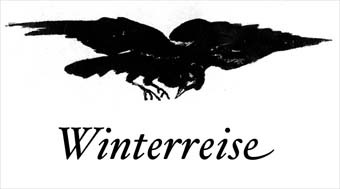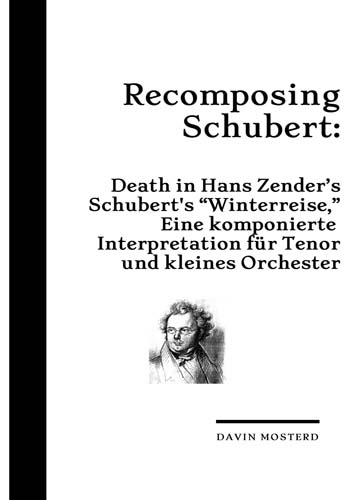Davin Mosterd
Recomposing Schubert: Death in Hans Zender’s Schubert’s “Winterreise,” Eine komponierte Interpretation für Tenor und kleines Orchester
Abstract: This thesis addresses the recomposition practices and looks at one case study: Hans Zender’s Schubert’s “Winterreise,” Eine komponierte Interpretation für Tenor und kleines Orchester (1993). The act of recomposition came into being and was cultivated in the twentieth century and these composition practices continue to be cultivated in the twenty-first century. However, until now musicologists have barely touched upon the practice of recomposition in literature. To fill this gap in the musicological literature, I propose a definition for the term ‘recomposition’ and analyse Zender’s work by looking at how the metaphor of death present in several prominent places in Schubert’s Winterreise is recomposed in Zender’s Winterreise. The concepts of ‘musical work’ and ‘musical canon’ are discussed in relation to the practice of recomposition. In my analysis, I shall consider the use of instrumentation, the changes in dynamics, transpositions, and the melodic material in both works. I argue that Zender’s recomposition changes Schubert’s Winterreise in such a way that the metaphor of death is even stronger represented than in Schubert’s composition. This shows that recomposition practices are not merely arrangements of earlier works, but compositions that stand on their own.
© Davin Mosterd 2019
Click on the image for the full text



